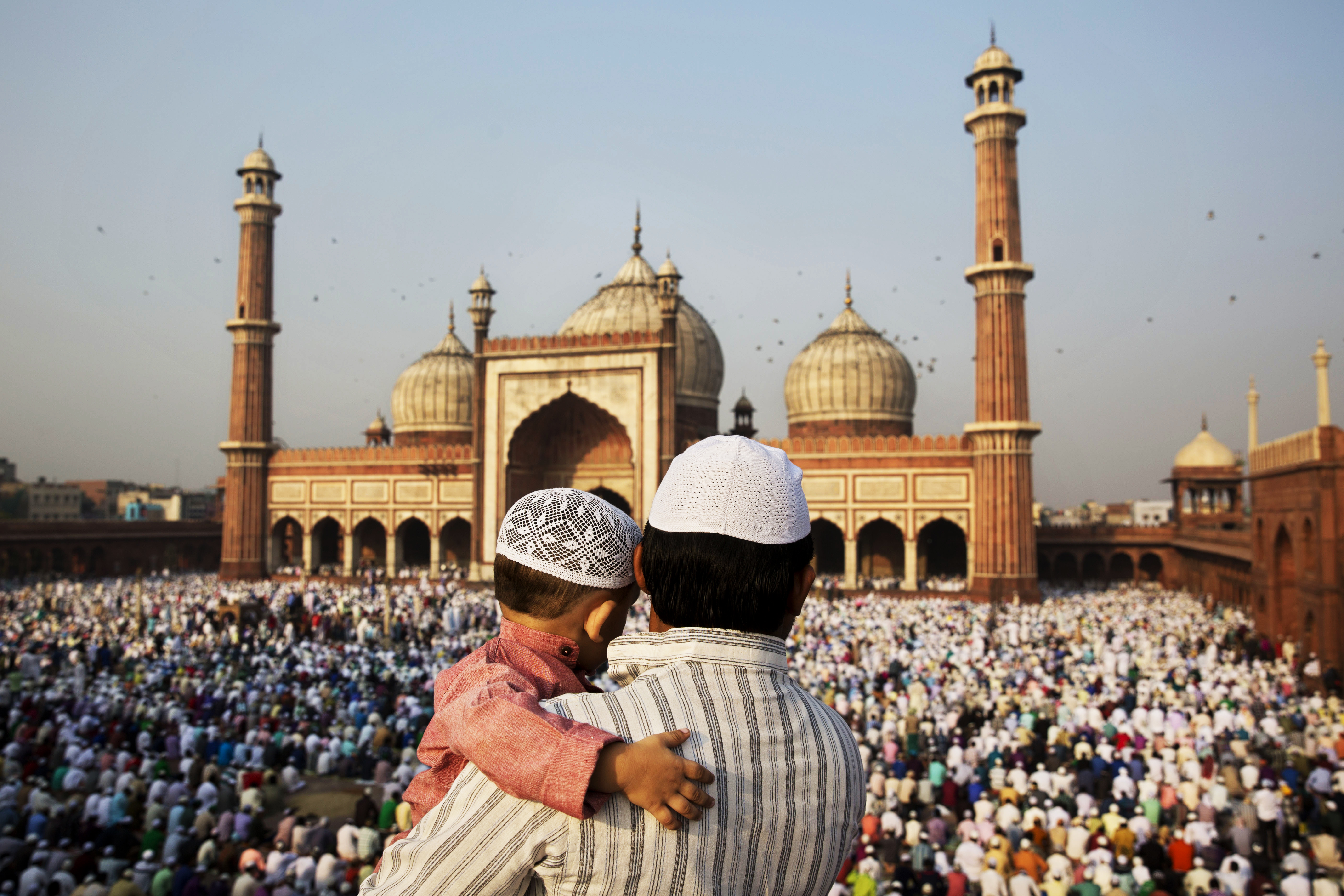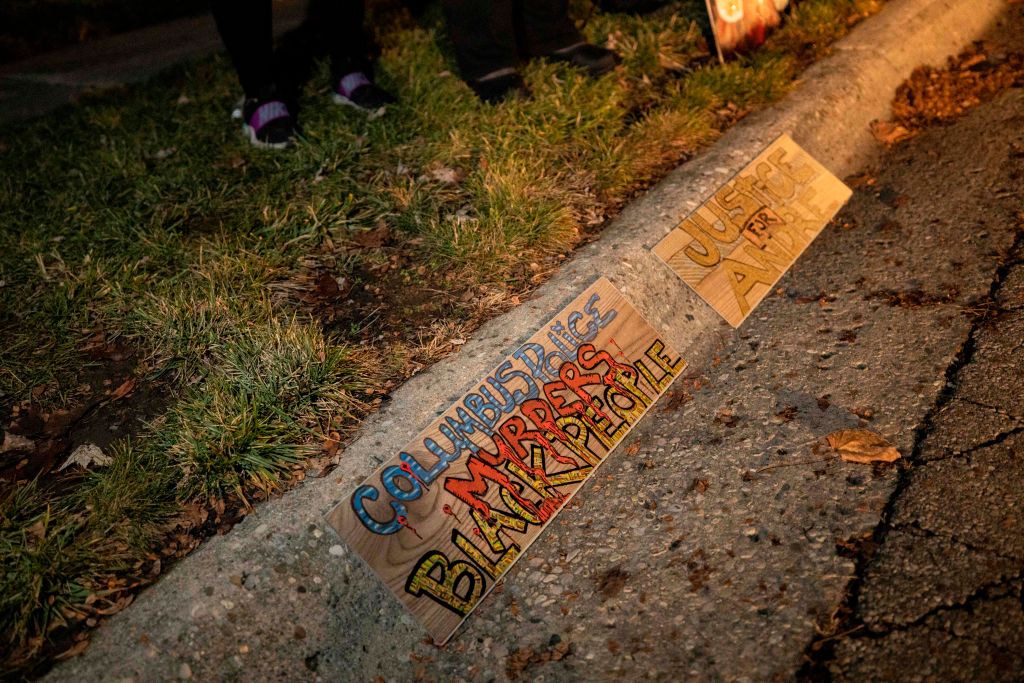8 facts you need to know about Islam and terrorism
This is a complex religious and social issue that defies simplistic theorizing


A free daily email with the biggest news stories of the day – and the best features from TheWeek.com
You are now subscribed
Your newsletter sign-up was successful
In the wake of the Paris terror attacks, as we debate the role of Islam in Europe, of mainstream Islam in the context of radical Islam, and of the nexus between orthodox Muslim beliefs and terrorism, I wanted to reacquaint myself with some basics. How many Muslims are there in the world? How do beliefs vary by countries? Can we quantify, based on polling and other data, how many Muslims believe in concepts that are at odds with modernity?
We can, it turns out. And with some precision.
Here are eight key facts that should ground our debates.
The Week
Escape your echo chamber. Get the facts behind the news, plus analysis from multiple perspectives.

Sign up for The Week's Free Newsletters
From our morning news briefing to a weekly Good News Newsletter, get the best of The Week delivered directly to your inbox.
From our morning news briefing to a weekly Good News Newsletter, get the best of The Week delivered directly to your inbox.
1. There are 1.6 billion Muslims in the world. That's 23 percent of the world's population. And somewhere close to 1.6 billion of these Muslims have not committed an act of terror, nor have they directly facilitated any terrorist act. So it's absolutely true to say that (in the context of terrorism) not only are most Muslims peaceful, but almost every Muslim alive bears no direct culpability for terrorist acts.
More Muslims live in Asia than in the Middle East, according to Pew Research. India and Pakistan have about 350 million Muslims between them; the Middle East-North Africa region has 317 million. There are 43 million Muslims in Europe, and 3.5 million Muslims in the United States. There are more Muslims in Indonesia than in any other country in the world, although Pakistan will have that distinction by 2030.
2. European Muslims are more moderate on sharia law. Eighty-four percent of Muslims in South Asia, 77 percent of percent of Muslims in Southeast Asia, and 74 percent of Muslims in the Middle East and North Africa believe that sharia law should be official law in their respective countries. Only 18 percent of Muslims in Europe believe that sharia law should be enshrined in addition to (or in lieu of) the existing law.
3. Some Muslims — including the tiny fraction who commit acts of terror — are immersed in an environment that permits and nourishes the core beliefs they cite as reasons for acting as they have. For example: 2.3 percent of Muslims in Europe believe that people who leave the Muslim faith should be executed. By contrast, 63 percent of Muslims in South Asia share that belief, as do 44 percent of Muslims in the Middle East, and 20 percent of Muslims in Southeast Asia.
A free daily email with the biggest news stories of the day – and the best features from TheWeek.com
4. Just north of ten percent of Muslims worldwide support and sanction religously motivated violence against civillians in at least some contexts. That's about 195 million, according to the most accurate polling of Muslim beliefs.
I could not find any polling about the percentage of Jews or Christians who support violence against civillians for violations of religious codes. Perhaps we should start asking before we draw any conclusions about the uniqueness of Islam in the modern world. Did a substantial minority of Catholics support Irish Republican Army violence in Northern Island? Did they condone it, at least?
5. The vast majority of the victims of Islamic terrorism are themselves members of the Muslim faith. This is a tragic but undeniable truth.
6. The chances that an American or a European — of any faith — will be victimized by an Islamic terrorist is vanishingly small.
7. There are seeming contradictions in how much Muslims support women's rights. In Europe, 44 percent of Muslims think that women should at all times submit to their husbands, but 88 percent believe that women ought to choose for themselves whether they should wear a veil in public. Outside of Europe, strong majorities of Muslims believe that women must obey their husbands and wear their veils outside their home. On other issues — homosexuality, divorce, suicide, and extramarital sex — practicing Muslims across the world are uniformly conservative.
8. There are big geographic differences in how people interpret the truth of the Islamic faith. In 32 of the 39 countries surveyed, half or more Muslims say there is only one correct way to understand the teachings of Islam. In the United States, nearly six in ten Muslims think there are many ways to interpret Islam.
You might try to fit these facts into a simple thesis about Islam, terrorism, and the West. Maybe Islamic terrorism is an existential threat to modernity. Maybe Islam is at war with itself. But these theses seem overly simplistic and fail to ring true.
Before we draw easy conclusions, we have a lot more hard work to do.
Marc Ambinder is TheWeek.com's editor-at-large. He is the author, with D.B. Grady, of The Command and Deep State: Inside the Government Secrecy Industry. Marc is also a contributing editor for The Atlantic and GQ. Formerly, he served as White House correspondent for National Journal, chief political consultant for CBS News, and politics editor at The Atlantic. Marc is a 2001 graduate of Harvard. He is married to Michael Park, a corporate strategy consultant, and lives in Los Angeles.
-
 Trump touts pledges at 1st Board of Peace meeting
Trump touts pledges at 1st Board of Peace meetingSpeed Read At the inaugural meeting, the president announced nine countries have agreed to pledge a combined $7 billion for a Gaza relief package
-
 Britain’s ex-Prince Andrew arrested over Epstein ties
Britain’s ex-Prince Andrew arrested over Epstein tiesSpeed Read The younger brother of King Charles III has not yet been charged
-
 Political cartoons for February 20
Political cartoons for February 20Cartoons Friday’s political cartoons include just the ice, winter games, and more
-
 Gunman kills 6, himself at Colorado Springs birthday party
Gunman kills 6, himself at Colorado Springs birthday partySpeed Read
-
 Columbus police fatally shoots Ma'Khia Bryant, 16, quickly releases body-cam footage
Columbus police fatally shoots Ma'Khia Bryant, 16, quickly releases body-cam footageSpeed Read
-
 Austin police, feds searching for ex-sheriff's deputy accused of killing 3, in Sunday's 2nd mass shooting
Austin police, feds searching for ex-sheriff's deputy accused of killing 3, in Sunday's 2nd mass shootingSpeed Read
-
 At least 8 dead in Indianapolis FedEx shooting
At least 8 dead in Indianapolis FedEx shootingSpeed Read
-
 Scalise says GOP will 'take action' on Gaetz if DOJ moves ahead with 'formal' case
Scalise says GOP will 'take action' on Gaetz if DOJ moves ahead with 'formal' caseSpeed Read
-
 Watchdog report: Capitol Police knew about potential for violence on Jan. 6, but held back
Watchdog report: Capitol Police knew about potential for violence on Jan. 6, but held backSpeed Read
-
 Former classmate arrested in 1996 disappearance of college student Kristin Smart
Former classmate arrested in 1996 disappearance of college student Kristin SmartSpeed Read
-
 Report: Gaetz associate has been cooperating with federal investigators since last year
Report: Gaetz associate has been cooperating with federal investigators since last yearSpeed Read
